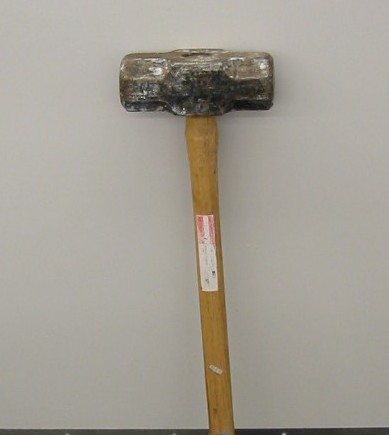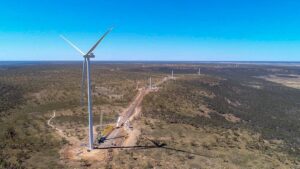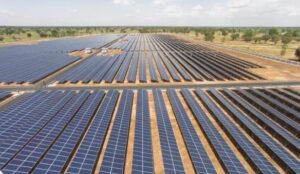One of the overwhelming themes of the submissions to the Clean Energy Finance Corporation – the $10 billion fund that is designed to unlock the financing challenges for new energy technologies – was that it should not seek to distort or disrupt the energy market in Australia.
Essentially, the submissions became a debate between those who have technologies and business models favoured by the prevailing market incentives and those who hoped that the CEFC would fast-track the introduction of new technologies that are likely to dominate in the decades to come.
It is likely, given its parameters, that the organization will produce some sort of compromise, emerging more as a “facilitator” of clean technologies than active backer, as occurred in the Department of Energy’s loan guarantee program in the US, and similar markets elsewhere.
This, says one of Australia’s leading innovators, would be a terrible mistake. Incrementalism and timidity, says Adrian Turner, the founder and CEO of IT security company Mocana Corp, have and will be the failing of the Australian economy in a modern, high-tech world. And it is time that Australia shook off its mining mentality and thought abut the technologies of the future.
“Australian innovation is on the brink of collapse,” he says, because Australia focuses on narrow aspects of innovation and not on commercialisation. “Investment is made today in the wrong places and the wrong measures are used to signal progress. By turning a blind eye, Australia is mortgaging its future, handing over the creation of new industries to other global economies. It cannot afford to be a technology luddite.”
Turner is a past chairman of Advance Australia, a US-based network of expatriate Australian entrepreneurs. And he has just toured Australia promoting a new book Blue Sky Mining, essentially a call to Australian financiers, entrepreneurs, and business executives to end their complacency and effect the change this country needs to prosper. He told RenewEconomy in an interview that he wants them to think beyond the commodity cycle and contemplate the billion dollar industries of the future.
Mocana, which devises security frameworks for connected devices such as smart phones and smart grids, and for medical devices and for the US Department of Defence, last September was chosen from more than 800 nominees to be named as one of the 25 technology pioneers for 2012. Turner says the “internet of things” is a growth industry, a trillion dollar market with forecasts of anything between 20 billion and 50 billion devices expected to be connected in the future.
He says while Australia is focused on mining and commodities, the global economy is going through a massive disruption from emerging services and technologies. “The Australian economy is just not in tune with that,” he says. But the ability to create new technology based industries will define where Australia sits in the world economy.
“The problem is, we’re wired to think in a linear way,” he says. “ We look at our historic pace of change and project that onto future development. We massively underestimate the long term impact of current technology trends and market shifts impacted by the technology. We have very little time to create the structural changes needed to foster sustainable innovation. Market disruptions will come even harder and faster.”
He notes that Australia business has a cultural problem around the “fear of failure:, it has a low tolerance of risk and is less willing to share knowledge. And, as is widely known, there is little venture capital available, and while the government is looking to intervene in the clean energy market to ensure that some capital is available, it is still not enough.
“I don’t think that the government really understands the problem,” he says. Metrics of success are poorly defined, as are some incentives, such as the technology tax credit, which requires business to be making money before it becomes useful, and seemed to be more focused on supporting Australian versions of overseas ideas, rather than incubating our own.
“There are some enormously talented people here, in CSIRO, the co-operative research centres, in universities. Wi-Fi came out of the CSIRO. Australia is getting patent royalties, but why didn’t it spawn the next Cisco Systems?
“There is a lack of political leadership in this country. They need to put a stake in ground and say we are going to be best in the world in some things – and there are plenty of candidates – clean energy is one, robotics, bio-security.
And he cites the case of Suntech, borne out of technology developed at the UNSW and now the world’s largest solar PV module manufacturer, but based in China. He says the Australian government holds up Suntech as an example of the kind of outcome that’s possible if proceeds from the carbon tax are invested in new alternative energy forces.
“Let’s hope not,” Turner says. “These kinds of statement demonstrate an apparent lack of understanding of what’s really required for Australia to systemically benefit from innovation around renewable energy. The Australian innovation ecosphere did not benefit from Suntech.” The challenge for Australia, he says, is for the next venture to be created from within Australia, not without. Ironically, that was exactly what Energy Minister Martin Ferguson said when he announced the winners of the Solar Flagships program last year.
Don’t forget the green thing
Meanwhile, Pacific Hydro has come up with the radical idea that the government’s Energy White Paper, supposedly the blueprint for energy development in this country over the next decade, actually take into account the government’s climate change policy.
In its submission to the draft energy white paper, Pacific Hydro, the country’s larges independent renewable energy company, says reform in energy policy and regulation is needed to ensure that the long term goals to transform the stationary energy sector to clean, renewable energy will be achieved.
In particular, it notes, the National Electricity Objective (NEO), the benchmark used by regulatory for making decision about the energy market, needs to incorporate environmental and climate change issues, a point made in a report last month by the Institute for Sustainable Futures and the Total Environment Centre.
“The NEO does not acknowledge the climate policy agenda, creating a divergence between energy market investment signals and the need to deliver on climate change and emissions reduction outcomes,” PacHydro general manager Lane Crockett says in the submission.
He said this is one of the most significant barriers to efficient transformation of the energy sector as it impedes regulators and energy market institutions from having taking into account the low carbon energy directions in the RET (Renewable Energy target) and Clean Energy Future package.
“The Energy White Paper has a clear opportunity to provide a long term and strategic policy environment which will ensure that investments in the energy market underpin Australia’s transition to a low emission future,” he said. “We hope that Government will use this to provide clear signals on grid, upgrades and expansion which are set to become a major barrier to the long term, clean energy goals for Australia.”







